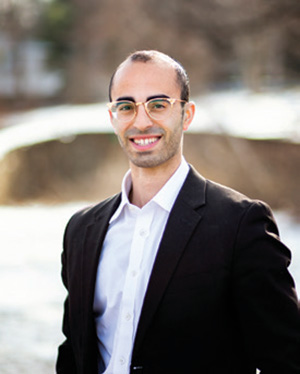
When we observe one of the consequences the metzora faces, at first glance it doesn’t seem like it’s that bad, although his sin of evil speech is rated amongst the worst. The sin of lashon hara is so bad that the Rambam (Hilchot De’ot 7:3) compares it to be equivalent of the three cardinal sins: avodah zara, shefichat damim and gilui arayot. Additionally, the Chafetz Chaim lays out a grand total of 17 negative commandments and 14 positive commandments that have connection to the sins of lashon hara and rechilut. You get the idea: this is pretty bad. But what seems to be a critical aspect of the metzora’s punishment? Some “time out.” “Badad yeshev,” he shall dwell alone, says the pasuk. Seemingly, that’s an integral aspect of his punishment. It almost sounds childish. I mean, OK, being alone and isolated is not pleasant, but seemingly he’s only there for a few days! Not only does the punishment not seem to fit the crime in the least, but it hardly sounds like this is actually a punishment! (Everyone enjoys a few days of isolation anyways, don’t they?) So, what’s going on here?
The Gemara in Nedarim (64b) lists four types of people who are considered like being dead: 1) a poor person 2) a metzora 3) a blind person 4) one who has no children. At first glance, these four kinds of people seem like they have nothing to do with each other and are completely random in that each one is considered like being dead for their own unique reasons. However, Rav Chaim Shmulevitz explains that these four actually share one deep-seated common denominator that spells their misfortune as to why they’re considered like being dead: They all lack the ability to give to another in some capacity. The poor person clearly lacks the resources to give. The childless person can’t give to any children she can call her own. The blind person can’t “give his eyes” to others, meaning he lacks the vision to truly see and therefore feel others people’s pain and thus give of his empathy. The metzora is isolated from people and therefore can’t either give to others.
All of these people are suffocated in their ability to give to whom they might desire to. The state of being so stifled from giving is so bad, it’s no wonder why they are considered like dead.
I had a question on Rav Chaim, and its answer will ultimately amplify Rav Chaim’s point even more: This explanation makes sense for the one who has no children, the poor person and the blind person, for they are all in a somewhat (at least potentially) long-term state of lacking the ability to give. So maybe only someone who is in a situation like those three where they are denied the ability to give for potentially such a long time is considered like being dead. But a metzora? A metzora is only denied his social sphere for a few days! He will only be rejected from giving for a rather temporary period, whereas the other three seem to contain much more permanence! Why is he considered like being dead if it’s only a few days!? But I think that’s exactly the point: even being denied the ability to give for a short period is so horrible that it’s like he’s dead.
Hashem is known as being the ultimate “meitiv,” giver of good. “Olam chesed yibaneh,” Hashem’s constant relationship with us and the world is through giving, giving and giving. We are made “in the image of Hashem,” which means we naturally possess this burning need to also give, give and give. When we are denied the ability to produce in this regard, we are like dead, perhaps because it goes against the definition of what a human being is and is meant to do: to be a meitiv like our Creator. Perhaps this is why even a metzora who is neglected from giving only for a few days is considered like dead because he is denied from executing his very purpose and fundamental need. This repression from giving (albeit for only a few days) is terrible enough that he’s like dead, and this might explain why isolation is indeed a punishment for the metzora.
Rav Chaim is enlightening us with a blockbuster shmuz about the concept of giving to another person. The idea that being denied the ability to give to another person is like being dead—even for a few days —is an idea that speaks to the very essence of man and his makeup. You ever notice when you haven’t been on the giving end and you just feel very heavy and lazy? When we’re disengaged from being a meitiv, we feel dead. If we don’t satisfy our need to give to others, we feel frustrated, suppressed and depressed. On the other hand, I’m sure you remember a time when you were saturated in the giving process; do you remember the rush? How vibrant you felt? How alive you were? When we’re being a meitiv we’re happy, energetic and full of life. (Another gematria for you: the numerical value of “chesed” [72] is similar to “ha’chaim” [73]: when you do “chesed” you’re living “the life.” I still think it’s cool to be one off on gematrias!) Selfishness, even if accidental or forced, is very hard to deal with although ironically we’re “satisfying” ourselves. We think we’re living the life but in truth it makes a person feel empty and emotionally and/or physically lethargic. However, selflessness naturally creates a pure sense of “living” since this state of being is an experience that involves a perfect sync between your true purpose and your true desire.
By Binyamin Benji
Binyamin Benji learns in Yeshivas Rabbeinu Yitzchak Elchanan. He holds an MSW, and is the author of the weekly Torah Talk in the Sephardic Congregation of Paramus’ newsletter. He can be reached at benjibenji26@gmail.com.









